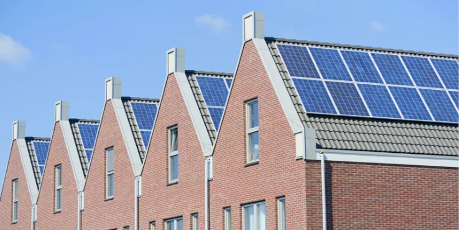How quickly can we ramp up renewables to deliver energy needs? 28 Apr 2022

Analysis: the task is well underway, but there are some significant challenges to overcome first - Dr. Paul Deane, Senior Reseaerch Fellow, Energy Policy Modelling Group, MaREI Centre/ERI, University College Cork
The war in Ukraine has exposed just how reliant we as a nation are on fossil fuels from abroad. About 85% of Ireland's energy comes from fossil fuels. While we don’t import significant volumes from Russia, we do see the consequences of the war in the prices we pay for electricity, heating and transport. Yet Ireland has a vast renewable resource in terms of wind, solar, oceans and land so why aren’t we getting most of our energy from renewables?
Before we can answer that question, it is helpful to think about different types of renewables and what they deliver. Renewables such as wind and solar produce electricity which can be used to power appliances, while other renewables such as timber from forestry thinnings or agricultural waste can be used to produce heat for factories or liquid fuels for cars.
A challenge with wind and solar is that most energy use across our economy (about 80% or so) doesn’t yet use electricity as a main fuel. It will take about two to three decades to replace all the cars, boilers and equipment that today use fossil fuel with ones that use electricity.
However, we can lay the foundation for fossil fuel removal across the rest of the economy by producing most of our electricity from wind and solar. The Government already have a target to increase annual electricity production from 40% last year to 80% in 2030, meaning that wind and solar will be the main sources of electricity in Ireland soon.
Wind and solar energy have seen dramatic reductions in costs and big increases in global capacity in the past five years. The idea of completely powering our world without fossil fuels and using only wind, solar and smart devices is very appealing. A symphony of wind blowing, solar shining and batteries charging in harmony to meet our daily electricity needs is conceptually possible
But there are two challenges that must be overcome to achieve this in a rapid way. The first relates to people and the importance of a robust planning process. Large wind farms and solar farms are industrial scale projects and must be carefully planned, permitted, and controlled to avoid negative impacts on people, wildlife, and surroundings.
Planning for energy projects is a long and complicated process with reports typically running to thousands of pages. The whole process from conception to planning and construction can take five to eight years, meaning that projects that are needed for 2030 must be planned for today.
With many applications to be scrutinised each year, it is important that bodies such as An Bord Pleanála, local county councils and the National Parks & Wildlife Service have adequate staff and resources to deal correctly with applications. This needs to be done in a manner that doesn’t compromise the integrity of the process, but does allow it to move faster so we can move away from fossil fuels quickly.
The second challenge in ramping up renewables is a technical issue. The electricity system is the heart of a modern economy and this heart must beat at a regular rhythm and be strong for the power system to operate correctly.
Today’s conventional power plants provide important technical characteristics to the power system which act like a pacemaker to keep the system pulsating at a regular frequency. This is very important to keep our appliances working correctly.
When traditional power plants are replaced with renewables such as wind and solar, this heartbeat can change, and technical solutions are needed. Very few countries, with the exception of Ireland, have any experience in this area and new ideas and solutions are being used by the power system operator to get around these challenges. Like the planning process, this must be done correctly and carefully, which takes time.
Reducing all energy consumption in the short-term is just as important as increasing renewables
However, the plan to get most of our electricity from wind and solar by 2030 is in train and it should be successful with a strongly resourced planning system and the right technical solutions. The challenge afterwards is to look at energy use across the wider economy and, in particular, switching cars and heating to electricity and other renewables.
While this takes time, reducing all energy consumption in the short-term is just as important as increasing renewables. This can be done where possible by driving less, turning down our home heating thermostats and turning off appliances when not in use. In response to the current energy crisis, researchers in UCC have developed a 10 point plan for Ireland to reduce fuel use by 10% this year. The more we can all do to reduce our energy use, the quicker we can move to a more sustainable future and away from fossil fuels.